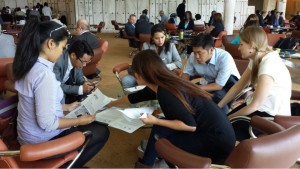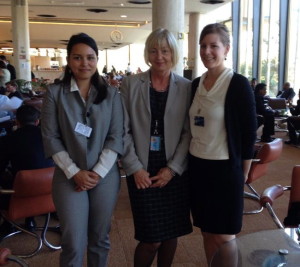China’s UPR human rights review: Successes and future steps
China’s human rights record was reviewed through the Universal periodic Review mechanism at the UN Human Rights Council in Geneva in October 2013; Tibet Justice Center’s co-coordination of a Tibet coalition lobby group saw UN members states successfully challenged to stand up for Tibet, as Tibet figured highly as an issue of concern at the review. UN member states now have until March 2014 to persuade China to accept Tibet-related recommendations. The Tibet Lobby Coalition will be working hard to follow this through to March.
The groundwork
Every 4 years, China has its human rights performance rated by the United Nations Human Rights Council under a mechanism called the Universal Periodic Review. At this, all the UN Member states can make recommendations to China about how it could improve. As part of its commitment to increase engagement at the UN level, TJC wanted to ensure that Tibet feature highly at China’s latest review in October.
In March 2013, Tibet Justice Center co-founded a Tibet lobby coalition, along with the International Tibet Network and Students for a Free Tibet and submitted a joint report to the UN on in advance of the review. Our key recommendations for the UN member states to give to China were on ending the patriotic re-education policies that see work teams in villages, monasteries and nunneries, ending the policies that are forcing Tibetan nomads and rural residents off their ancestral lands, and ensuring independent observers, including UN High Commissioner for Human Rights Ms. Navi Pillay gain access to Tibet.
TJC’s ED Iona Liddell travelled to Geneva in early September to deliver an oral statement on behalf of the coalition reiterating these recommendations to over 30 countries’ representatives. In mid-September, she returned, this time coordinating a team of six young, committed, articulate Tibetan lobbyists. Together they were able to reach out to over 30 countries in 1-1 meetings in and around the Human Rights Council session, delivering our key recommendations and asking them to mention Tibet when raising concerns to China.
Success!
At the review, tension was in the air, but 12 countries stood up for Tibet and raised related concerns – more than twice the number at China’s first review in 2009. The USA was particularly strong, urging China to “protect the rights of ethnic minority groups including Tibetans, Uyghurs and Mongolians, in accordance with the Chinese constitution and international human rights commitments.”
TJC’s Iona Liddell went on to chair an online press conference immediately after the review with experts from the Tibet Movement, Human Rights Watch and Initiatives for China to discuss their reactions.
China now has until the UN Human Rights Council session in March 2014 to decide whether to accept or reject the recommendations put forward to it by states, including those relevant to Tibet. Between now and then, as part of the Tibet lobby coalition we will be asking states to pressure China to accept their recommendations in March. We will also be back in Geneva in March to nurture our contacts, make the Tibet presence felt and continue building pressure for the UN member states to unite and stand up for Tibet.


